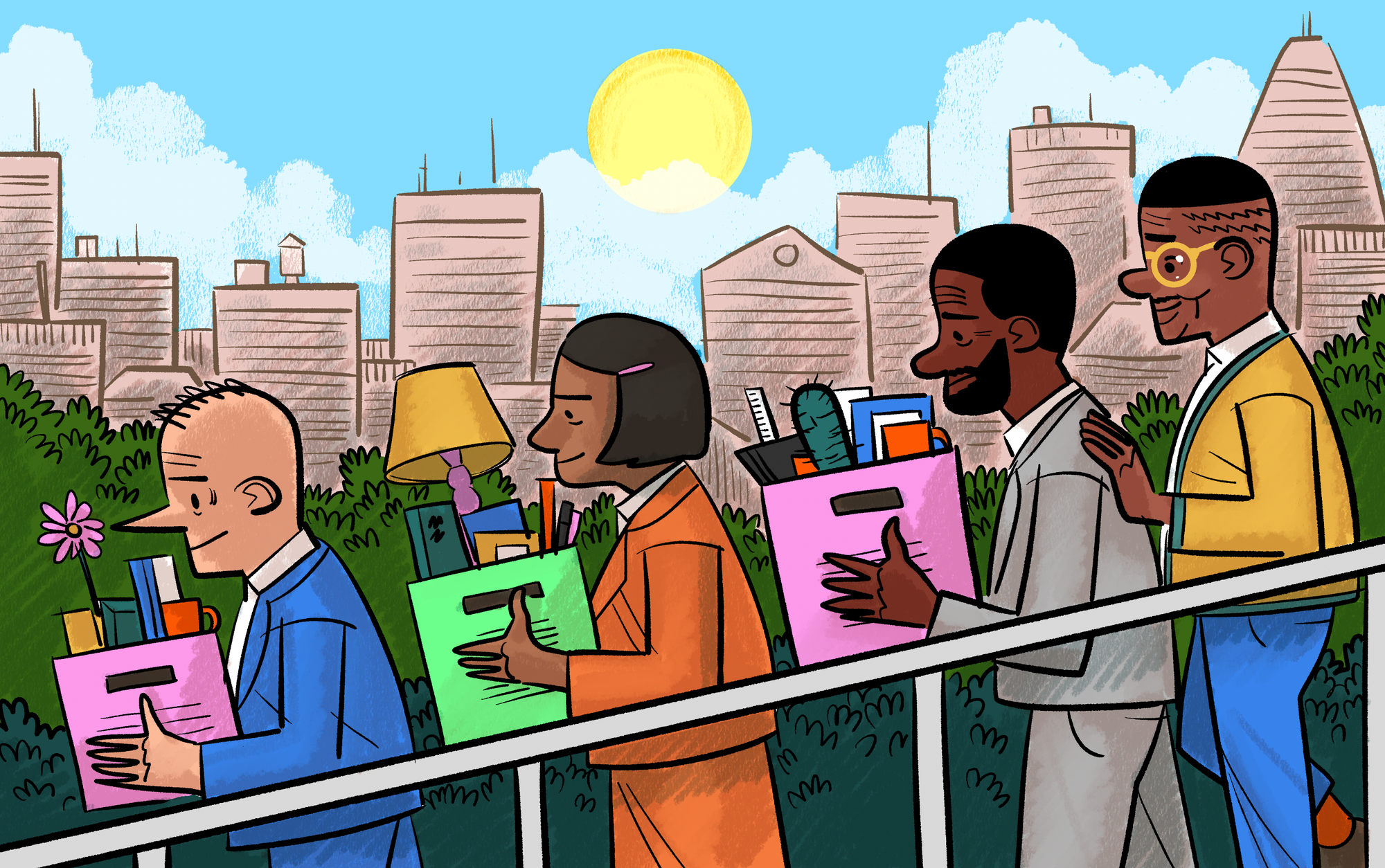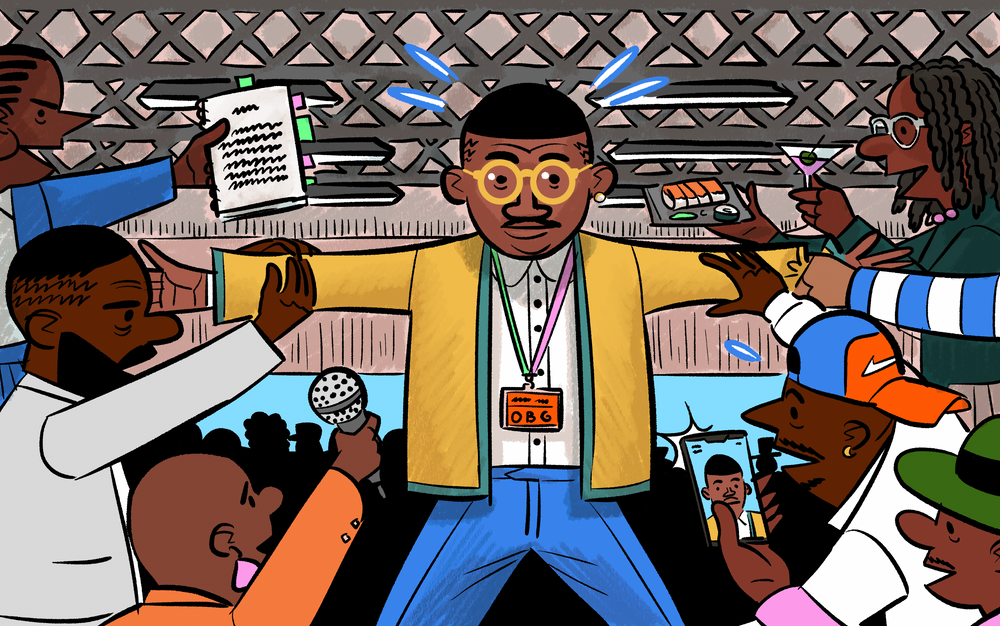There are a lot of myths about being a Black professional that really scuff my Timbs. When you work for non-profits, people think you’re trying to give back to your community because you have a family member who lost their way and now you’re trying to prevent others from going through the same hardship. When you work in entertainment, especially Black entertainment, the assumptions are that you’re trying to be an entertainer, too (or your cousin is an entertainer and that’s how you got put on). Working in sports media leads people to think you only love leagues dominated by Black folks—the NFL and the NBA. Nobody assumes you have insight on the most talented shortstop or who is most likely to win the Stanley Cup.
The interesting thing about all of these myths is they’re held by not only non-Black people but Black people, as well. In most of my experiences, many of the misunderstandings about what I do, why I do it, or who I do it for come from my own people. And look: I get it. People don’t know what they don’t know, so they ask questions. And even some of the most absurd ones get a pass because I know I’ve been just as ignorant about other people’s professions as they’ve been regarding mine. But there is one legend I was confronted with recently that not only scuffed my Timbs but creased them, too.
I recently attended this year’s AfroTech convention held in Austin, Texas. From Sunday to Thursday, I was bouncing from panel discussion to activation to multiple company booths at the conference’s career expo. All the while, I networked with other people in various states of their tech careers. Each morning and afternoon, I shook hands, looked at résumés, and scanned multiple LinkedIn QR codes to stay in touch. But as soon as the day’s activities were done, the happy hours and parties were just beginning. There were multiple open bars and open tabs, names were being checked on guest lists, and instead of LinkedIn profiles being exchanged, it was Instagram handles and phone numbers. Not to mention performances by Bas, Bia, and Wale.
There was a lot of partying going on, but also a lot of professional development. The most exhausting myth I’ve had to dispel is the idea that those who were in attendance were not doing both.
When I returned, a lot of my friends who didn’t go were quick to cast judgment. “Working, huh?” said one of my friends. Another friend of mine said based on what she saw on social media, it was giving more All-Star weekend than AfroTech. One person said the week looked like a Black college spring break rather than a professional networking event.
One would think in the year 2022, we’d all know better than to make assumptions based on the highlights we see on social media alone. There are 86,400 seconds in a day, of which most people at AfroTech probably shared a total of 300. And based on what those attendees shared, many people Insta-watching from home probably assumed we spent every moment with a cocktail in hand. In other words, we couldn’t possibly work hard because we were spending too much time partying hard. Thing is, this couldn’t be further from the truth for myself and many of my colleagues.
For many Black professionals, there are very few occasions where we’re surrounded by our own people—especially in startup culture and the world of tech. When I left the comfortable confines of my HBCU alma mater years ago, I knew I wouldn’t get to be in environments where I wasn’t the Only very often. But that experience also allowed me to know such a world is possible if only for a moment, and when you’re presented with the opportunity to be a part of it, you go and enjoy every minute.
And that’s what everyone did at AfroTech.
There was a lot of partying going on, but also a lot of professional development. The most exhausting myth I’ve had to dispel is the idea that those who were in attendance were not doing both. Most of the Black professionals I know have worked hard to be where they are and sacrificed many good times to get that promotion or chase the bag. You’d never expect them to apologize for their success, so nobody should expect them to be shy about enjoying it, either.


